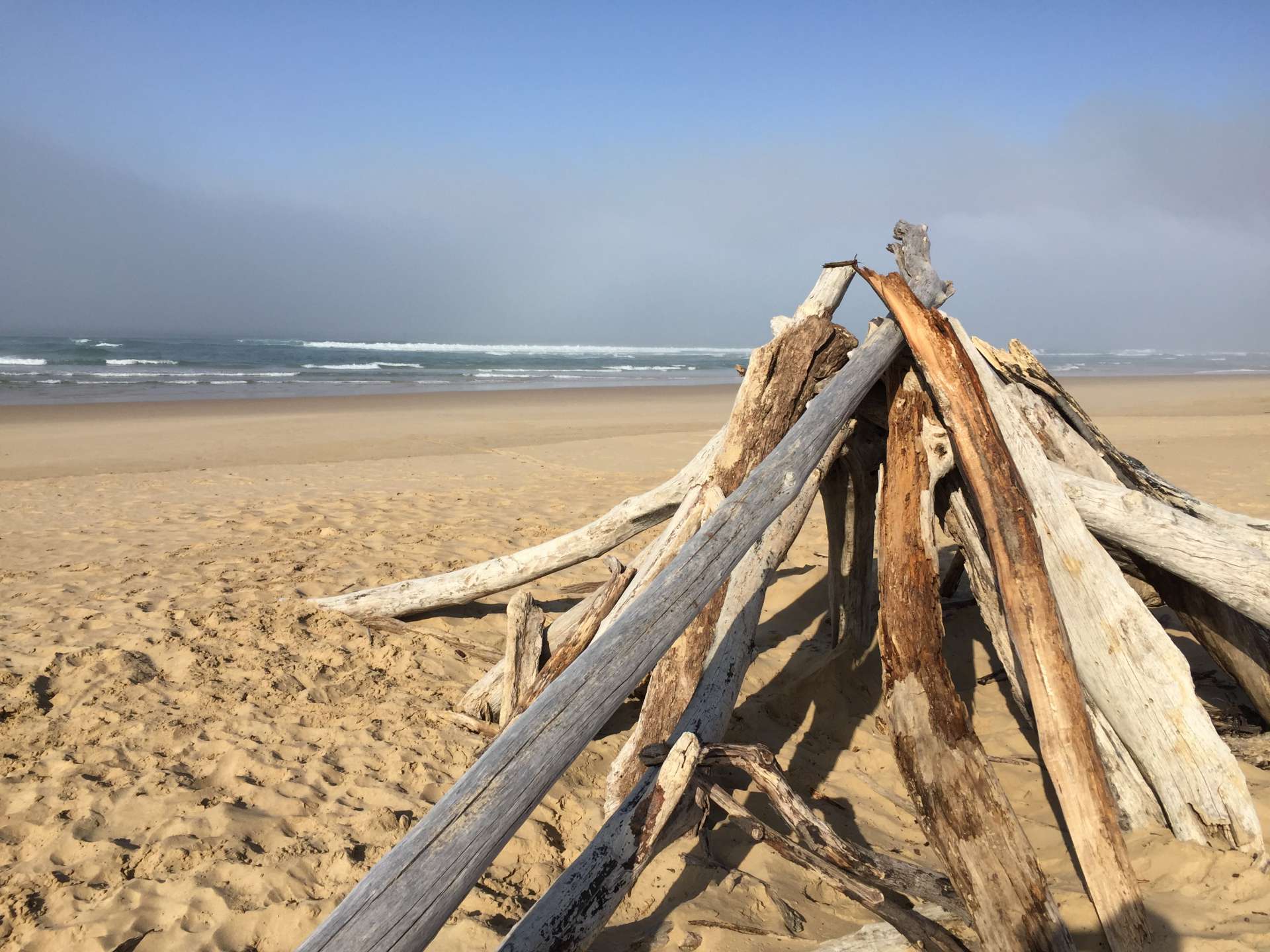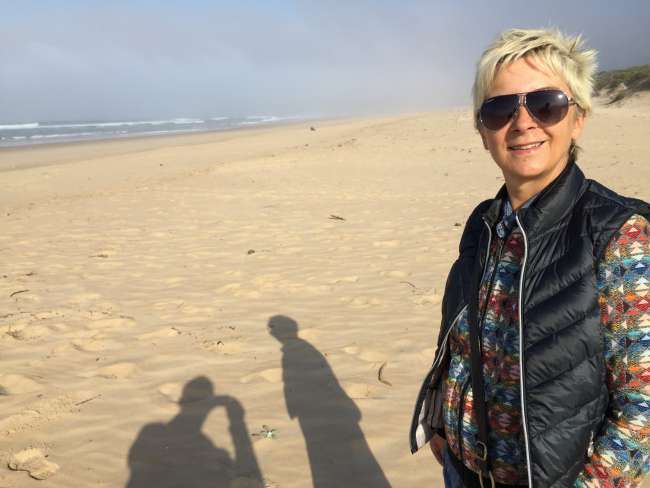From Plettenberg Bay to Oudtshoorn
Atejade: 24.09.2016
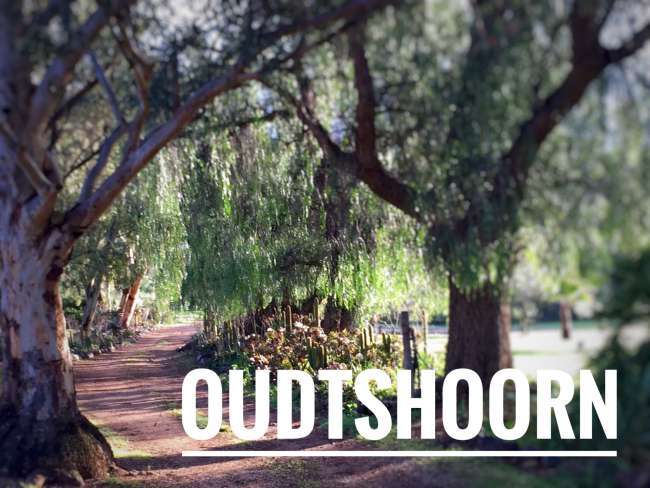
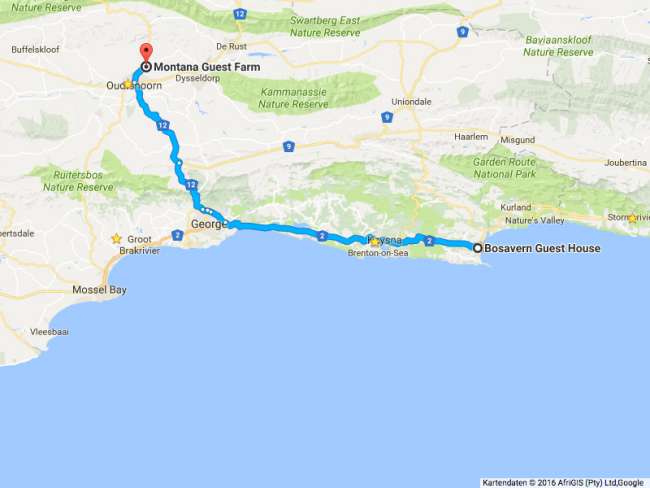
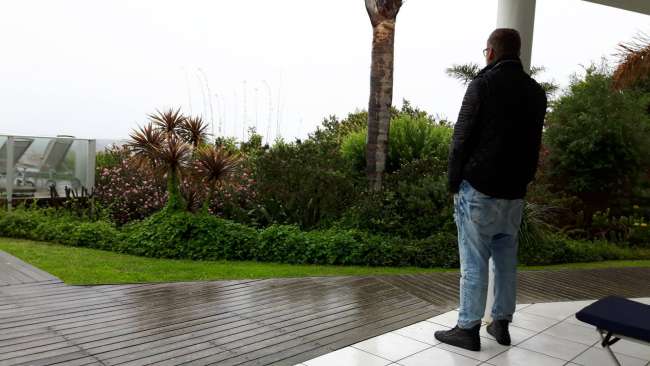
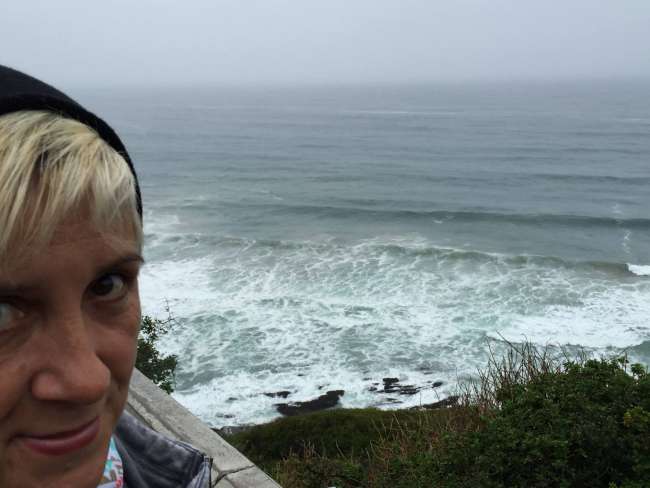
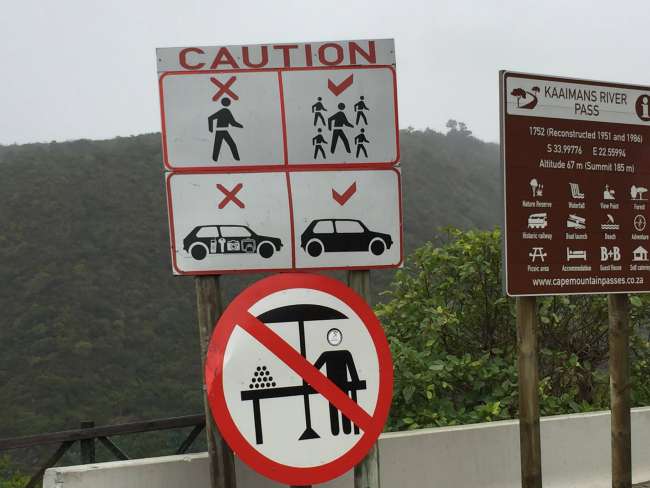
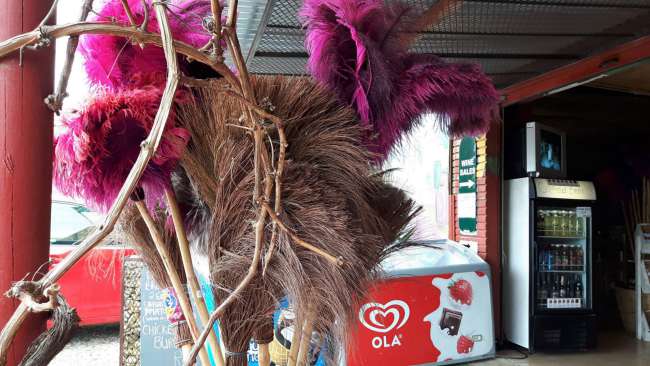
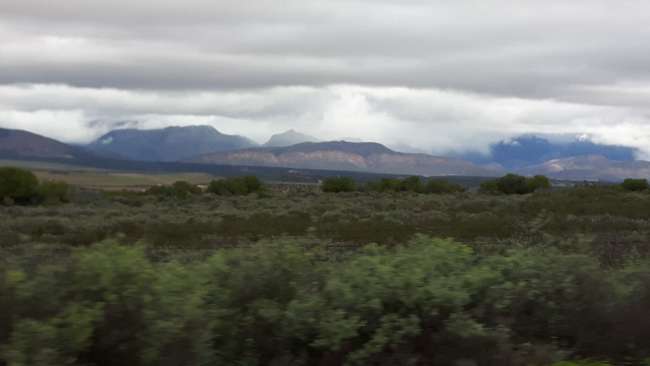
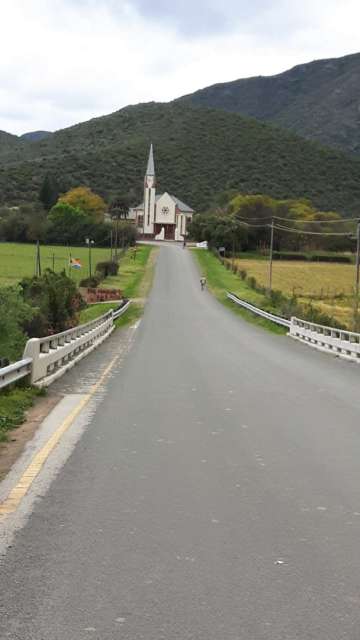
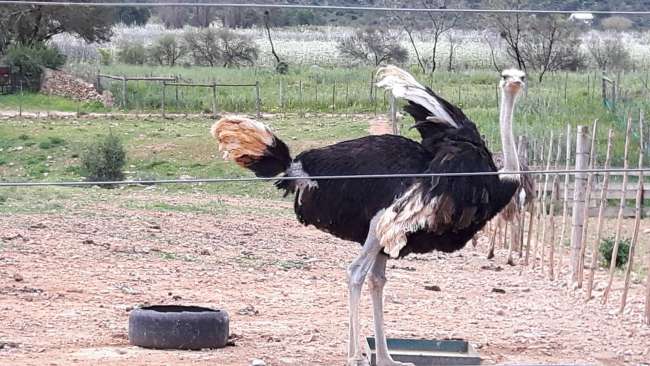
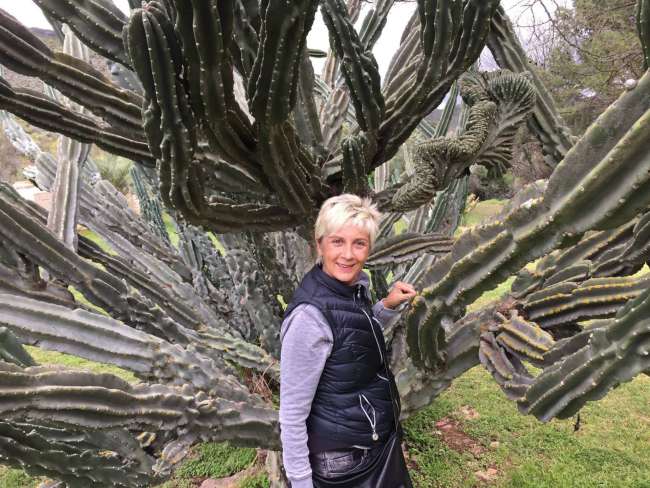
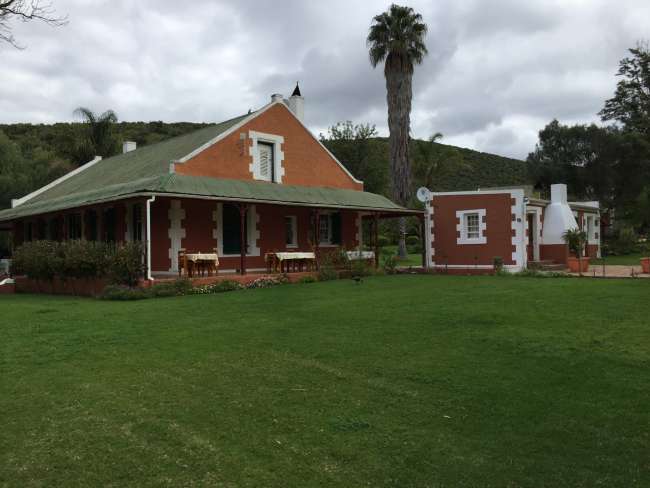
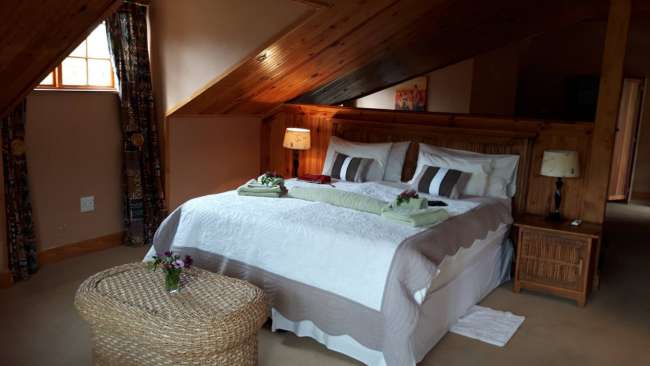
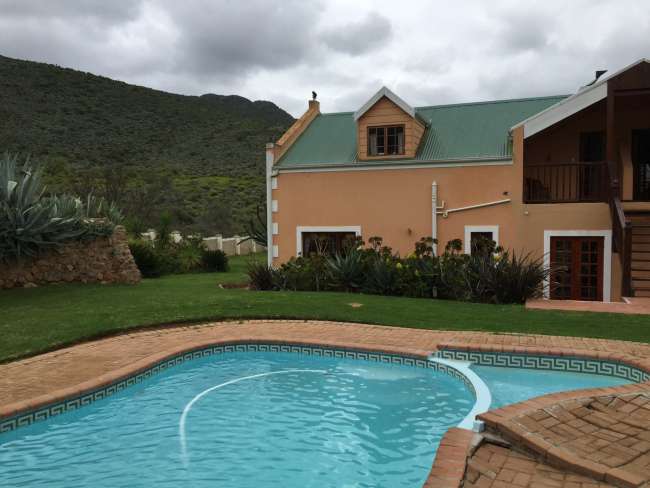
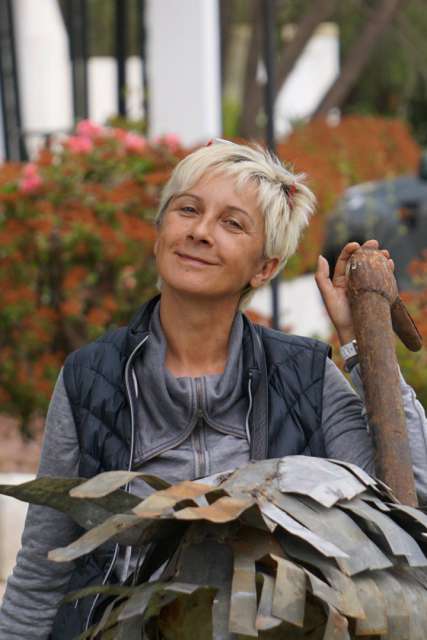
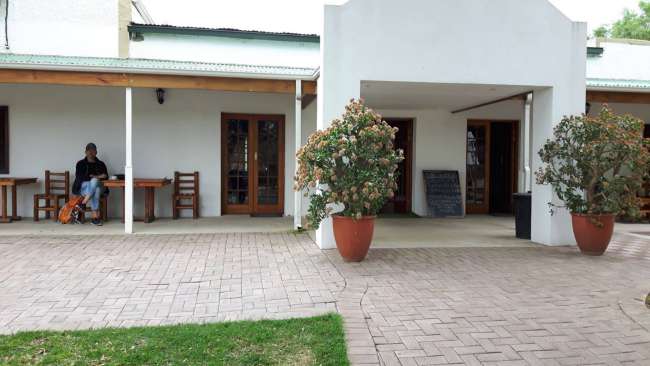
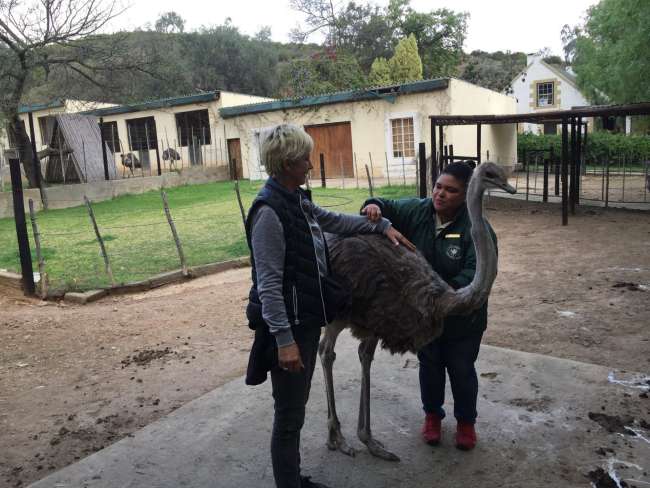
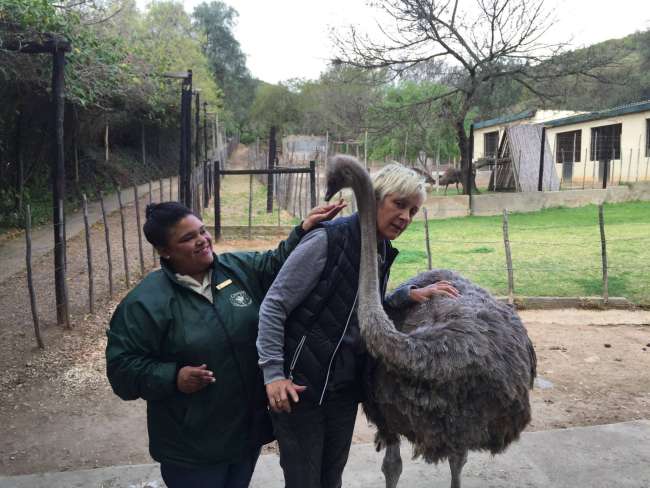
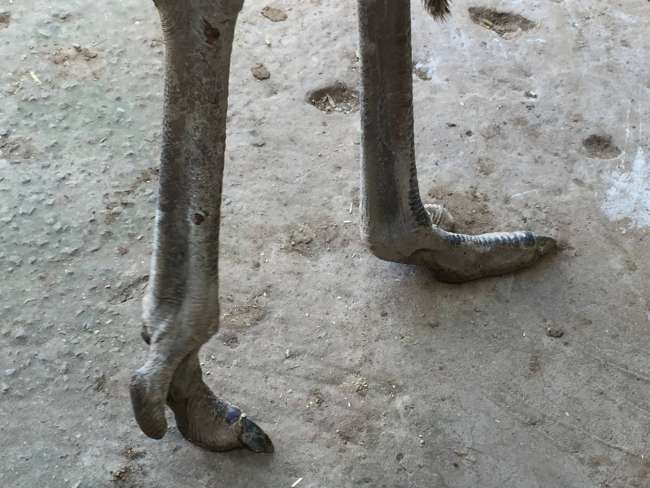
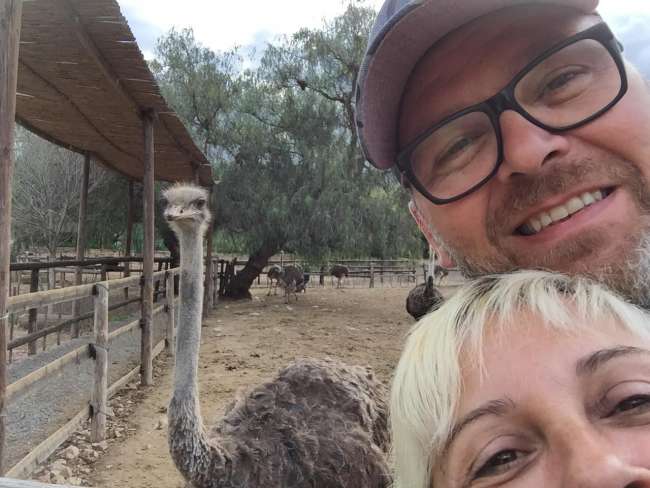
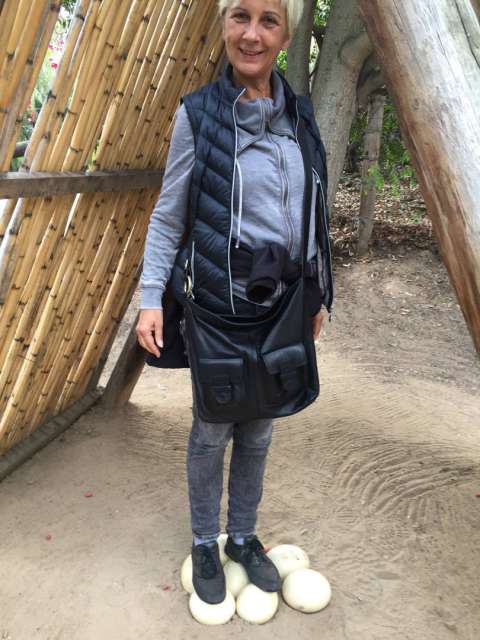
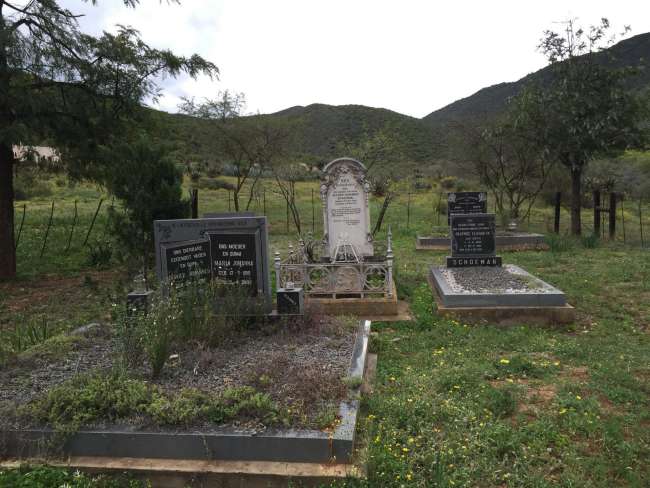
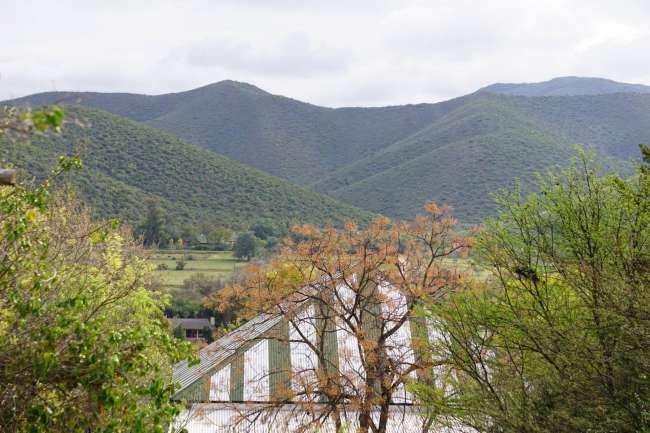
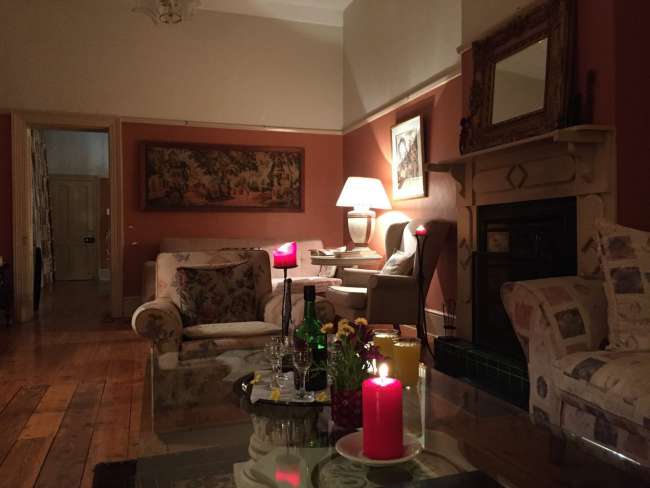
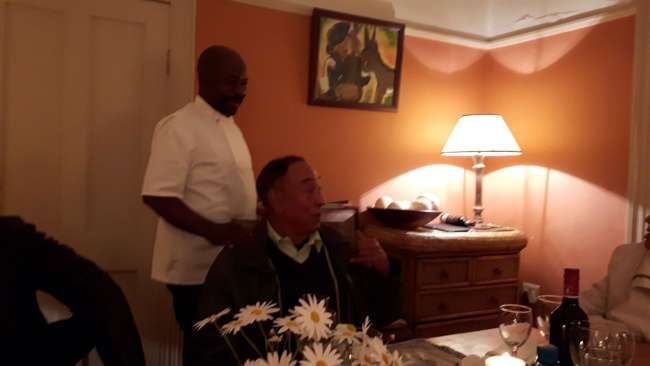
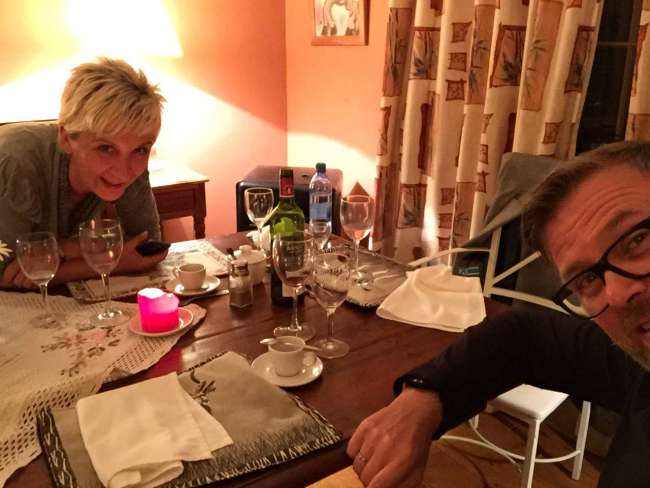
Alabapin si iwe iroyin
South Africa / Day 12 (Fri.) - 2.9.2016
The last morning in our beautiful hotel in Plett was rainy, just like the previous evening. But as optimists, we still believed that we had been very lucky with the weather so far.
At 9 o'clock we started towards Oudtshoorn. We turned inland and made a quick stop in George, a larger city that didn't particularly impress us at first glance, but we just wanted to have a coffee and exchange money. We quickly found a bank, had to take a ticket and wait. While waiting, short commercials were played on a monitor and the numbers of the next counter and where to go were displayed. There were only two more people in front of us, and we were promised a short waiting time. But after 40 minutes when it was still not our turn and we complained, the supervisor in the back room, where we wanted to go so badly, checked and found two women inside, happily chatting for the past 30 minutes. And they couldn't tell us how much longer it would take. We left the bank angrily. The same thing happened in Oudtshoorn: only one woman in front of us, but it took 1.5 hours! In the queue, the people who were being served at other counters felt sorry for us and told us that this was always the case in South Africa. Despite digitalization, there was still a lot of paperwork.
If anyone ever tells me again or a travel guide tells me that it is best to bring cash to South Africa because you can hardly pay by card, they will get beat up.
However, the drive between the two mentioned places was very beautiful. We drove along a well-maintained pass and crossed a mountain. After that, the landscape completely changed: the mountains were less and only covered with low bushes, the colors slowly changed from lush green to red and beige stone. The first ostriches were standing by the roadside, as Oudtshoorn is the ostrich farming center of South Africa.
On the mountain top during our drive over the pass, we were surrounded by clouds and learned that in such a case, when it's foggy, the drivers here drive with hazard lights on.
In the valley, we stopped at a farm shop. There were feather dusters and brooms everywhere in this area. The feather dusters were made of ostrich feathers (in this case from a transsexual ostrich), and the brooms were made of wild boar hair, mostly from the bristles of the boars' beards.
After the "short" bank visit, we drove through the town of Oudtshoorn and felt like we were in the southern states of the USA with a view of the road: black people in colorful clothes, some in uniform, families with many children - what a hustle and bustle, with American-sounding street music. But now we were probably really in Africa. Until now, the feeling for us had been more European.
We stayed a bit outside of town in an idyllic, very peaceful guesthouse, the Montana Guest Farm. It is located about 10 km behind Oudtshoorn, in the Cango Valley in the small town of Schoemanshoek.
In principle, this place consists only of a few small houses, ostrich farms, guesthouses, and the Montana Guest Farm.
Well, we thought, for an overnight stay on the way to Hermanus via the R62, with a small detour via the R328, it will be enough to see a few animals here, rest for the longer journey, and eat some ostrich meat. But it turned out even better.
The road led us along a gravel road, past the church, to the farm. The driveway alone transported us back to the 19th century. Several beautifully restored houses, nestled in meadows, trees, cacti, and flowers, made time run a little slower. We felt a bit like Scarlett O'Hara from 'Gone with the Wind'.
The reception at the reception house, which also housed the restaurant, was very friendly. After a short greeting and asking for any preferences, we went past the beautiful houses, pool, terraces, and meadows, to the back part of the farm, to the cactus suite, located in a cactus garden with its own pool. The suite is a dream: 80 sqm, with a freestanding whirlpool, box spring beds, seating area, 2 terraces, and underfloor heating. From our window, we look out onto a small cemetery. The owners of this first ostrich farm where we will now spend a night are buried there. They also gave this small place their (their) name Schoemanshoek.
Everything seemed a bit outdated, but it didn't matter because the charm of the furnishings, the fresh flowers in the room, and the view made up for it.
We made ourselves a coffee, lay down on the comfortably padded loungers by the pool, and relaxed for a bit.
After that, we briefly explored the farm, went to the main house, and met Wolfgang there, the owner and soul of the property. He, an older, very refined gentleman, is German who migrated to South Africa in the 70s and acquired this over a hundred-year-old farm 15 years ago and lovingly restored and expanded it.
Already now we didn't want to leave his side anymore, his flowery tales about the region and its possibilities made us regret staying here for only one night.
Then we went to the nearby ostrich farm.
This is a pure show farm, where the animals can be touched by visitors under supervision. Since their animals also reproduce, but no more than 100 can live on this farm, the eggs are hatched and sold to the neighboring farm, which then slaughters the ostriches later (at 11 months, otherwise the meat becomes tough).
The young woman who guided us through the farm was very funny, she could also speak a little German and told us a lot of new things. What I remembered from it:
• Ostrich farmers in South Africa made a lot of money with the feathers until World War I. They were very valuable at that time. Today, they earn more with the meat and leather, but not nearly as much.
• The brain of an ostrich is smaller than its eye ('The lights are on, but nobody's home!')
• When ostriches are in love, their otherwise yellow legs and beaks turn red.
• They can turn their heads 360 degrees.
• They only have 2 toes.
• They constantly eat stones, of which 2 kg remain in the stomach. This grinds the feed. In a frame, we could admire the stomach contents of an animal. Besides stones, there were also pieces of wood and metal, a lipstick, and a high heel slipper in it. ('We don't know what happened to the woman!')
Just as we returned to our accommodation, the chef visited us to ask what we wanted to eat. Guess what delicious meal we chose?
At 6:30 p.m. sharp, we went to the restaurant, where the host awaited us in a suit in the fireplace room. Besides us, there was a Swabian family with two boys - about 11 years old - staying at the Montana Guest Farm. Wolfgang chatted with us about SOUTH AFRICA, his impressive life as a lawyer (including for the UN in the matter of apartheid and for Mandela, he still has a law firm in Leipzig, was born in Halle/Saale, was a FDJ secretary and DSF leader in his youth, after high school, his parents fled with him to Frankfurt am Main) and then offered that he had invited a friend, the former mayor of Oudtshoorn, to celebrate the day.
He then arrived (James) with his wife Rose and their slightly handicapped son Jamsy. What a group! We all chatted freely and experienced true hospitality. After that, the chef invited us to a large, festively set table, where the host served delicious wine. Or, in other words: From then on, the red wine flowed abundantly. By the way, the mayor and his family also kept their winter coats on while eating, even though the fireplace was burning and an additional heater was next to the table, but this seems to be common in South Africa in winter. We saw that more often.
Before eating, everyone held hands with their neighbors, and James said a prayer for us and good weather.
The food was first-class, of course, we had ostrich, and for dessert, there was zabaglione, handmade!!! The evening ended with wine, espresso, and good conversations in German and English.
The mayor told us (several times) how his friend Wolfgang ('our Oudtshoorn Ambassador') helps the city, organizes student exchanges between Oudtshoorn and Dresden, that South Africa needs more tourists, and that we should advertise his beautiful country. It was a truly fantastic evening.
See you soon...
Tatjana
By the way, I also write on: https://www.facebook.com/rucksackfrei/
Alabapin si iwe iroyin
Idahun
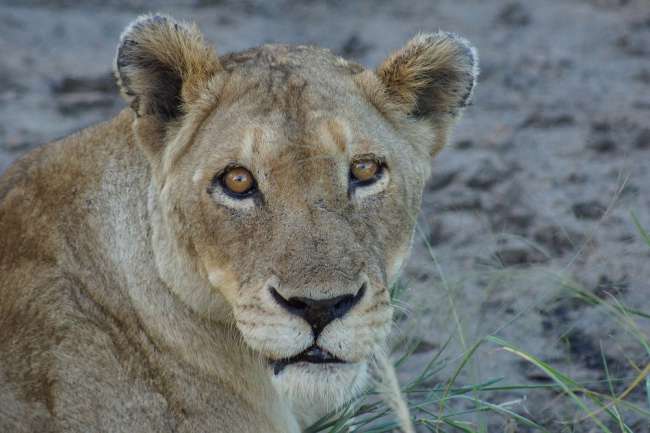
Awọn ijabọ irin-ajo Gusu Afrika
